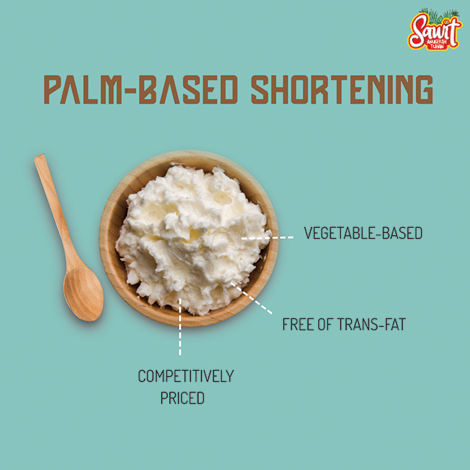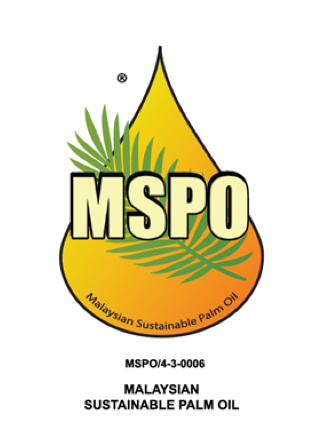The oil palm fruit
 Oil palm is a unique crop as its fruit produces two different types of oils. Palm oil is obtained from the mesocarp and palm kernel oil from the kernel. Both of these oils are chemically and physically distinct from each other.
Oil palm is a unique crop as its fruit produces two different types of oils. Palm oil is obtained from the mesocarp and palm kernel oil from the kernel. Both of these oils are chemically and physically distinct from each other.
Palm oil and palm kernel oil are mainly made up of triglycerides. Taking advantage of the different melting points, various fat components can be produced through physical separation processes.
This simple process involves heating the oil at about 70oC and gradual cooling to induce crystallisation in a controlled environment. The solid portion called stearin and the liquid portion called olein are separated through a filtration process. Depending on product requirements, this fractionation process can be further applied on stearin and olein to produce various other types of fat products such as mid-fraction, super olein as well as soft and hard mid-fractions which have different melting profiles.
Versatile and Healthy fat
In the production of solid fat-based food products such as margarine or shortening, liquid oil will be partially hydrogenated to make it more solid, thus increasing its oxidative stability. However, this process will generate a high amount of harmful trans-fats. Trans-fats can be found in common products which use partially hydrogenated oils or fats as ingredients in their preparation. These ingredients can be in the form of margarine, shortening or frying fats. Consequently, bakery products such as pastries, bread, cakes and biscuits are among foods which commonly contains high levels of trans-fat. Similarly, foods that are fried in partially hydrogenated oil will also contain trans-fat.
Palm oil has natural solid fat and therefore does not require partial hydrogenation. The products are thus free of harmful trans-fats. As a matter of fact, palm oil is a healthier alternative to partially hydrogenated fat. Among the various sources of fats, palm oil is considered the top choice for restaurants and food manufacturers due to its versatility and diversity in application. Below are 10 reasons why palm oil is so highly desirable:


Roles of fats in baked products
The fats used in bakery products performs two important functions.
- It enables air to be incorporated in the batter
- It contributes to the tender texture of the baked products
Good aerating properties require sufficient liquid oil content to enable air bubbles to be formed and the presence of solid fat in the form of small crystals (beta prime form). Large crystals (beta form) would not be effective in trapping and stabilising the air bubble.
What really happen to the batter or dough during baking process? During the baking process, water vapour is generated and goes into the air bubble as does the carbon dioxide from the baking powder. The air bubbles become larger but at this stage, the air is still surrounded by fat. As the baking temperature increases, fat melts and eventually egg protein becomes firm so the air bubbles are retained. This is how the cake structure is formed and fixed. A good bakery fat should not melt too quickly during mixing and baking so that air bubbles remain trapped throughout the baking process to impart the desired final texture of products.

How does palm oil improve the quality of bakery products?
1. Crystallisation in the beta prime form
Beta prime is the desired crystal form in bakery fat such as shortening as it has a very high structure stability. Palm oil and its solid fraction (palm stearin) have a very high stability in the beta prime crystal form compared to other common vegetable oils.
2. Trans-fat free products can be produced
Palm oil is naturally semi-solid. This composition confers natural stability to the oil without the need for hydrogenation. Consequently, this avoids the presence of harmful trans-fat in the finished products.
3. Have good functional properties
- Palm oil imparts good creaming volume for cakes and cookies as well as promotes better bread volume.
- Palm oil-based pastry fat imparts excellent layering for puff pastries, pies, Danish and croissants.
- Palm oil contributes to the quality of the final product by imparting tenderness, moistness, flavour and texture.
- Palm oil provide good stability with respect to oxidation to bakery fat and bakery products thus prolonged their shelf life.


As can be seen, the characteristics of fat are important. An ideal fat for bakery products must have small fat crystals, smooth and easily spreadable texture. Palm oil is very effective as a major component for such applications. Sustainable certified Malaysian palm oil is abundantly available which makes it an important ingredient for the bakery industry.

